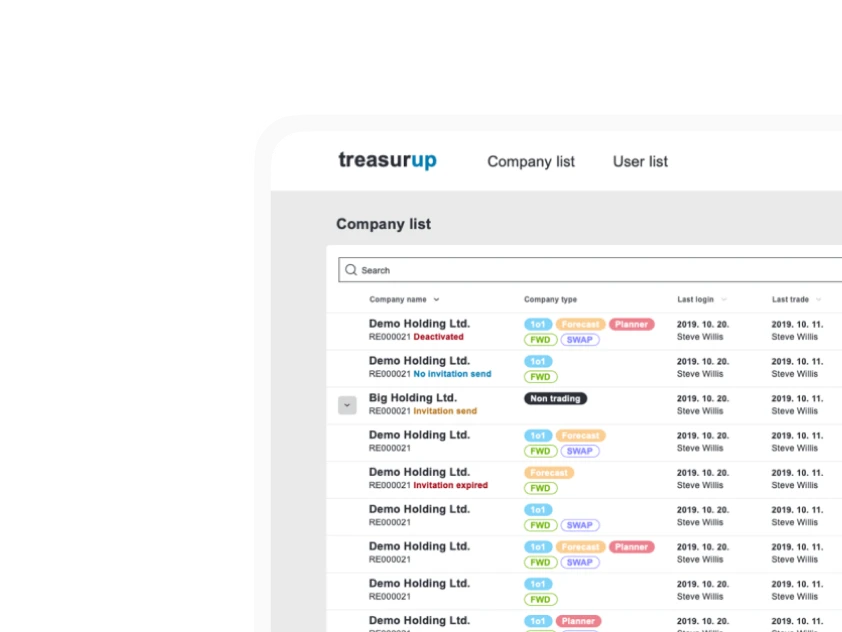Hong Kong – A Bridge Between East and West
Be prepared to range over many subjects in talking with Emil Chan, self-described Fintech Evangelist, Digital Futurist, and flag-waver for Hong Kong.
The ‘Special Administrative Region’ of China is the fourth most densely populated region in the world. From the 1840s the island was a colony of the British Empire, following the devastating Opium Wars. Emil describes the progression of the then-territory to more recent times, “Hong Kong became a fairy tale land, where the toys and electronics for the world were made. Then we gradually transformed to financially bridging the West and the East.” China had the Great Wall, both literally and metaphorically, but Hong Kong was the channel to the rest of the world. The wealth of Hong Kong exploded as it became the third-ranked global financial center.
The erosion of trust
The growth of the financial markets in Hong Kong was based primarily on trust, Emil says. His early career in banking with Credit Suisse and BayernLB embodied some of the old-school ways of working, but now he says the old trust system is being eroded. “China is not a good friend of America anymore. Because of sanctions, import tax, and issues in the Middle East and Ukraine, the old role of Hong Kong has to be transformed.” He also points to the USA’s Quantitative Easing policies, “Decentralization is happening - it has to happen as trust breaks down. Now it’s like the Wild West. We have to deal with money laundering, anti-terrorism and many other issues.”
 Emil Chan
Emil ChanHow Hong Kong banking works
The HK dollar has been pegged to the US dollar for more than forty years, “Despite the fact that it’s not yet tokenized by the blockchain. So the physical form of the Hong Kong dollar is actually a stablecoin.” There’s no Hong Kong Central Bank, only a monetary authority, and three money issuing banks - HSBC, Standard Chartered, and Bank of China. The stability of these banks helps faster transactions without much ‘censorship’ and facilitates Anti Money Laundering measures.
Emil is keen on promoting something along the lines of MiCA, the European Union’s Markets in Crypto Assets regulation. “So if, for example, HSBC issues a stablecoin or deposit token - which is what they call it - then you deposit money into the bank. The bank issues the tokens, which can be circulated freely among everyone who has a wallet. If the amount is small, then it's anonymous. If the amount is up to a certain size then there’s an AML check. And if the amount is huge then it’s somewhat like wholesale. There are different levels, but the Hong Kong dollar can play a very important role, because it’s US dollar-backed, under the law of Hong Kong, and the common law of China.”
Determined to change
Some people have a very linear career progression. Others, less so.
Dr. Raymond Chan graduated with a degree in electronic engineering, but was already working on software for medical imaging. From university he went to IBM, but felt uncomfortable in his engineering role there, and moved over to a major customer of the company, HSBC. There, as a graduate trainee, he was given a job as IT Officer in the technical service team. Bearing in mind that he is now ‘a Web3 guy’ it’s worth charting Raymond’s journey, where from around ‘92 he was still working with mainframe computing, writing Cobol and assembly languages for banking. “But I'm not the kind of person that can sit still, coding and debugging and everything. So I determined to change,” he says. While still studying for his MBA, another large bank - Standard Chartered - approached him to get involved in what was known as its ‘electronic channel’, meaning ATMs, telephone banking, internet banking and even ‘Palm banking’. The new internet boom coincided with Raymond completing his dissertation on Internet Banking in Hong Kong. It was the right subject at the right time in the right place, especially as Standard Chartered were just launching an aggressive programme of e-banking with the stated aim of being, ‘The best e-bank in Asia.’
 Raymond Chan
Raymond ChanAt the beginning of ‘virtual banking’
This gets our story up to around 2000, when the internet bubble went pop, and many Hong Kong financial initiatives and investors became disenchanted, with banks rapidly pivoting back towards bricks-and-mortar business. Enter Raymond Chan, the marketeer. This time it was Fortis bank that he moved to, after his initial application had been turned down because the bank wasn’t into developing new channels. Nevertheless he was then asked to head up a marketing team for promotion and communications of banking products. Around seven good years of learning on the job followed, until the fateful collapse of Lehman Brothers, when Raymond felt the need to move away from a product area he’d increasingly become involved in promoting. And did he move on to a similar marketing field? No, of course not! China CITIC Bank in Hong Kong now hired him to manage physical retail branches. “I said to my recruiting manager, ‘I have no experience in branch banking at all. Is that okay?’ And the answer was ‘Yes’, because my character fitted the position.” We’re getting closer to Raymond’s eventual transition to Fintech and Web3, because from being a regional head of branch banking for CITIC, coupled with his past experience in e-banking, he was now tasked with setting up the e-banking and mobile banking for China CITIC Bank International. One of his proudest achievements during that time was to develop the mobile app ‘inMotion’ for the first remote customer onboarding in Hong Kong. This meant that for two years during the development process, he was often in deep discussion with the Hong Kong Monetary Authority - something that would stand him in good stead later. As a result of his negotiations with the HKMA, the law was changed so that ‘virtual bank’ licences could be issued, rather like the digital-only Challenger banks springing up in Europe and elsewhere.
For the rapidly emerging Fintech scene in Hong Kong, Raymond was now a go-to figure for knowledge of how the system worked. “By the end of 2022, one of the Hong Kong government policy strands was to develop the Web3 industry. So they were pushing for legislation and regulation of the virtual asset platforms. I helped my two licensed corporations to apply for an uplift of the licenses - from traditional securities to dealing and advising on virtual assets.”
Hong Kong’s part in catalysing China’s future development
King Leung’s Fintech experience is deep, and yet he shrugs off his own achievements, preferring to get to his role with InvestHK. It’s a government department of the Hong Kong Special Administrative Region, responsible for facilitating two-way investment. Born and raised in Hong Kong, from King’s teenage years he lived and studied in the USA, with his first work placements including engineering, consulting, technology, operations, finance, supply chain management, and strategy. That was an excellent multi-disciplinary grounding for his subsequent work with InvestHK. In the USA he gained work experience with a VC, but the big change came when China was admitted to the World Trade Organization in 2001.
King began to think entrepreneurially and considered returning to the land of his birth, where Credit Suisse backed his Fintech data startup. Credit Suisse also became his first client, and opened the door to other non-competing companies. Data analytics and data mining were still a rather novel area, but King came up with an additional attractor for executives to more easily understand: wrapping his offering with a loyalty program. He was soon working with the Estée Lauder global skincare group, along with a host of other top brands, and saw further possibilities for big data analytics, founding two more companies.
 King Leung
King LeungDeveloping trust and rapport
In the midst of many commitments, including becoming an Angel Investor, King made a critical self-inquiry, ‘Well, what else haven’t I done?’ The answer that ticked all the boxes was governance, so 2019 saw him joining Invest Hong Kong. “My prior background as a finance person and fundraising as an entrepreneur came in very useful. These experiences helped me develop trust and rapport with our InvestHK clients. They know I'm here to serve and help them.” King’s role now is Global Head of Financial Services, Fintech & Sustainability, Invest Hong Kong.
But does Hong Kong really need to attract yet more Fintechs? King points out that in a macro context the city has never been just a local market. China dominates as a manufacturer, selling to markets around the world, and gaining traction in Latin America and Africa. It seems that everyone is trading with China, and yet the Chinese currency isn’t fully convertible. Even ‘simple things, like payments’ don’t allow direct payment to a Chinese e-commerce company or exporter, and so the transaction is most commonly settled in Hong Kong. This is to the tune of multi-trillion dollar trades between China and the rest of the world. King remarks, “Payment is a highly specialized field needing a lot of players doing very specialized things. That in itself means Hong Kong can accommodate a good number of payment firms to facilitate cross-boundary payments.”
Second only to Switzerland
He adds that Hong Kong is the second largest cross-boundary wealth management center in the world, after Switzerland. And Switzerland is a country, while Hong Kong is ‘just a city’. On the subject of wealth management, many first generation Chinese founders are now at retirement age and are handing on their wealth to second generation family members. Typically these are people who are tech-aware and well educated, so when they are looking for a place to set up their family office, Hong Kong is well-placed. It’s the same country, but under ‘One country, two systems’. It appeals to high net worth and ultra high net worth individuals, who appreciate Hong Kong’s many wealth advisors, wealthtech companies, and private banking such as JP Morgan and UBS. There were $4.53 trillion US Assets Under Management as of end-2024. Wealthtech Fintechs are growing in line with increasing demand, along with an enthusiasm for crypto and digital asset Fintechs.
The big picture numbers
Based on InvestHK’s figures, there are some 1100-plus Fintech organizations in Hong Kong, putting aside investors and accelerators and focusing on startups and scaleups. Around two-thirds of these are B2B. These include 160 banks and around the same number of insurance companies. There are 2,000 to 3,000 asset and wealth managers, and about 1,000 insurance brokers. King observes, “It’s a business-centric economy which we try not to over-regulate.” InvestHK is not itself a regulator, but works closely with colleagues in the regulatory area, striking a balance between protecting investors, and encouraging innovation. The result is that many B2B Fintechs don’t need a licence to operate, making Hong Kong market entry quite easy.
 King Leung onstage at Hong Kong Fintech Week
King Leung onstage at Hong Kong Fintech WeekA totally new asset class
Raymond Chan is a prolific columnist and also lectures at universities in Fintech, blockchain and Web3. So what’s going on with Web3?
“If you look at the last fifteen or so years, there has not been any new kind of asset class. But virtual assets are a totally new asset class, so it brings in a lot of potentials that are different from the traditional asset class, and these will attract a lot of what we call ‘old money’, or traditional wealth. What I'm working on is the integration between traditional finance and the Web3 world because, of course, Web3 is still not in our daily lives. For example, you don’t see McDonald’s priced in Bitcoin. So we still need some interface between Web3 and traditional finance. I'm working on what we call on-ramp and off-ramp crypto services.” On-ramp crypto refers to the process of exchanging fiat currency such as US dollars for cryptocurrencies. Off-ramp crypto is the opposite. Raymond says that this is the beginning of how a traditional investor will indirectly enter the crypto market by way of a very traditional instrument, and that many governments are starting to craft their own strategies on virtual assets.
The fragmented regulatory system
Times are changing with new economic and political forces, and Raymond hopes that the Hong Kong regulatory authorities are up to the job. He explains that the strategy of ‘same business, same risk and same rule’ follows an overarching principle that different activities for virtual assets will nevertheless fall into the regime of different regulators. This includes the Securities and Futures Commission, the Hong Kong Monetary Authority, and its Payment Systems regulator. Aspects of legislation also come under the remit of Customs and Excise, “So from a certain point of view it is far too fragmented.” This also creates the potential for regulatory arbitrage where a company can utilize more favorable laws in one jurisdiction to circumvent less favorable regulation elsewhere. Raymond muses that there could - or should - be one ‘super regulator’ to oversee all of this new virtual asset business, which could be more efficient and beneficial for Hong Kong, but he observes that to date things aren’t going that way. If anything, regulators are becoming even more fragmented. He also cites how, for example, the public keys of the blockchain industry are kept in a quite different way to that described by regulators, and that the view of how wallets are safeguarded is not necessarily a shared one. However he does have some praise for the authorities when he points out that, “In Hong Kong, it's very common that even the Hong Kong Monetary Authority or the SFC, before they come up with the new regulations, will at least have a public consultation. Whether they will accept the feedback or not is another thing, but through the industry associations we can advocate and have some influence on the shaping of the policy and the regulations.”
The Kodak effect
Back to Emil Chan and a side hustle of his - being a noted photographer of the somewhat surprising subject of Argentinian Tango in Hong Kong, as well as an in-demand recorder of beauty pageants. He ties in the history of photography to Hong Kong Fintechs and finance. It goes like this: From the 1890s, the American film-making company Kodak was the world’s pre-eminent photographic company, and yet a century later was struggling. Paradoxically, the company was one of the earliest developers of the digital camera, which was to kill off the cash cow of its film manufacturing business. Kodak in effect engineered its own demise and by 2012 was filing for bankruptcy protection, (although it has to some extent bounced back). But what has the Kodak story to do with Hong Kong?
The need to evolve
“Hong Kong is at a critical moment - it can fall into a self-created trap as Kodak did,” says Emil. “For example, Hong Kong invented the Octopus Store Value Card. The money is not in the account, but in the card itself, but Octopus didn’t evolve, right? It’s still the same card, the same reader.”
He observes that with the market in crypto assets soon to be enforced in, “Not just a sizable country, but the European Union, the third largest economy on Earth”, traditional Finance in Hong Kong must deal with digital assets. Not the assets themselves - like Bitcoin or Ethereum - but as stablecoin. “So when we trade the digital asset, we have to settle or transact it to real money. And the real money is either the Euro, the US dollar or the Chinese Yuan - which has to be digitized too. At the moment, we are still relying on Visa or Mastercard for retail payments, and do not have a solid wholesale settlement system. It was Swift, but Swift is over fifty years old and relies heavily on correspondent banking. We cannot rely on the old system.”
Hong Kong as a sandbox
Emil’s mission is to ensure that Hong Kong will not become diminished like Kodak, but instead, “Follow the world order and become digitized. We must become open, as we were in the past.” China can use Hong Kong as a sandbox to unleash its real power. But China is currently being ‘too humble’ despite its position as the world’s second largest economy, and is lagging significantly on Web 3.0, where Emil describes progress as ‘empty’.
“The world will soon be equipped with a new vehicle for financial trading, but as yet Hong Kong is the only Chinese city to allow Web3 and to legalize digital asset trading. So it is a sandbox, and if Hong Kong works out well, then perhaps Shenzhen, Shanghai, and then the rest of China will follow. Hong Kong has an important role to play. We were the bridge anyway, and now we have a new role to unlock the potential of China. Binance, Crypto.com and many digital exchanges were founded by Chinese entrepreneurs, but they are not allowed in mainland China and emigrated to other places. Do we have a choice if Europe, America, Russia and the rest of the world are using crypto, and there's no crypto in China? No, there is not an option.”
Boomtime then exodus
One of the consequences of China pressing the off-button for cryptos was that a lot of business flooded into Hong Kong. However Emil says that the Hong Kong Government didn’t understand what was happening and were going through their own Kodak moment. Business was good, and with no VAT or Goods and Services Tax, what was there not to like? However, moves were made by the Securities and Futures Commission of Hong Kong to roll out strict measures to control the situation. An exodus began with digital finance companies fleeing to Singapore, the Middle East and the UK. “We lost a lot of talent and economic advantages. The situation became quite bad before the government realized what was happening. Luckily, there’s a new initiative telling the whole world that Hong Kong will be a future digital asset trading hub. But to me, we were that already.”
Light speed expansion of crypto
Crypto has also become ‘a very sexy’ topic in recent times, encouraged by a progressive policy and regulatory stance, with the result that since 2022 some 300 crypto, blockchain and digital asset-based companies have been encouraged to set up in Hong Kong. King Leung points out that the 11 licensed virtual asset trading platform operators are in a ‘sweet triangle’ of policy makers and regulators, with InvestHK, and the incoming companies. He also observes that the space is moving forward ‘at light speed’ and changes almost weekly. “We take the pulse of the market and feed back to our policy-making colleagues so that they can design policy which is conducive to business, while at the same time protecting investors. That’s the kind of balance that InvestHK brings.”
Taking the market pulse
King underlines that many sectors are adjusting to market volatility. However looking at the Hong Kong financial sector in general gives some perspective. In 2018 roughly 20% of GDP was contributed by the financial services sector, which had risen to 25% by 2023, underscoring the importance of responding to market needs. One need which surprised King when his team surveyed investors, was an increasing interest in alternative assets. In part this is down to when the stock market and bond market both corrected at the same time in 2022. If you happened to have had the traditional 60/40 equity bond portfolio, then you would have lost a lot of money. Many investors and high net worth individuals determined not to repeat that mistake and began looking to diversify into less volatile areas. InvestHK facilitates business network connections for Fintechs tailored for private assets and wealthtech platforms. “Once we know from investors that there’s a need, my team looks for the best and brightest wealthtech platforms. If we don't have them in Hong Kong, we go around the world looking for them.”
Talent in abundance
It seems that with expanding opportunities for new Fintechs, the demand for tech talent must be difficult to fulfil, but King reckons that Silicon Valley, London, and New York are more under-resourced. In contrast, the One country, two systems principle of the People’s Republic of China means that Hong Kong has huge talent potential to draw on. Shenzhen is the Silicon Valley of mainland China, and is just seventeen minutes from Hong Kong by high speed train. It’s common to have project managers sitting in Hong Kong, with coding done in Shenzhen, and Chengdu - another mainland Chinese tech powerhouse. “We have the best of both worlds,” King remarks.
He also mentions the practicality of many people in Hong Kong, in relation to their UX-UI needs. He cites the case of the massive Alibaba Group which in China had the well-established Alipay digital wallet. However when introduced to Hong Kong the whole UX-UI interface required redesign, because users weren’t getting on with the mainland version. Alibaba was advised, ‘Look, things are completely different here in westernized Hong Kong. If you don’t change the Alipay interface you might as well not bother with the Hong Kong market.’ The UX-UI was redesigned to be more ‘practical’, and Alipay in Hong Kong took off.
Vulnerabilities
With Hong Kong on the rise again, Emil Chan recognises the geopolitical threat in the ongoing rivalry between China and the USA. “Now nowhere is safe. If the USA imposes sanctions, Hong Kong will be one of the places it will lay the bomb because it's open. It's not Shanghai, it's not Shenzhen, it's Hong Kong, and Hong Kong is connected to the world.” So how is that vulnerability to be countered? This is where Web3 comes in to bring Hong Kong closer to Europe, Southeast Asia, and South America. Hong Kong must become ever more outward looking, with a mindset change. In the past Hong Kong startups were mainly interested in doing local business, but as the ecosystem has become ever more ‘dry’ - as Emil describes it - companies are increasingly looking beyond their 1,104 square kilometre territory.
The internet and where that led
He reflects on the development of the internet, with the analogy that it’s like everyone having a driving licence, but that doesn’t mean they know how their car actually works. However, we can drive and do business. “The Internet is owned by nobody and it runs on its own. But when you are talking about moving money from one place to another, you needed an intermediate party: a bank, or Visa, or Alipay in China. Crypto, particularly Bitcoin, solved that problem, so we can run a system which is owned by nobody or everybody and then we can move funds across countries. There is a lot of data lying around everywhere. AI uses the internet but the world is no longer flat.” Now, Emil says that China, Russia and other countries which are unfriendly towards the USA have to solve their own problems without American input and AI will help them in this. He sees the next five to ten years being a crucial period in which alternative AI engines will mature, led by Russia and China.
Together and apart
Add to this the differences of ‘One country, two systems’ that both separate and bind Hong Kong to China. There’s the total ban on supplying any virtual assets services to China residents, while at the same time the Hong Kong government is actively promoting its own high profile Web3 strategy. As such, Hong Kong is seen as a sandbox for new regulatory tests which in time may be applied to the whole country. As legislation for over-the-counter trading, money changing, virtual asset custodian services, and more come to maturity in Hong Kong, Dr. Raymond Chan foresees a time when they can be applied to the whole country. In the meantime Hong Kong acts as a bridge between China and the rest of the world, and this is not just Raymond’s intuition: When we speak, he’s recently returned from Beijing where he attended a national studies program about the latest developments in Chinese Communist Party philosophy on both the free flow of capital, and information.
So the time may be coming when ‘One country, two systems’ could conceivably be ‘One country, one system.’ If or when that happens, much of the groundwork for what Raymond hopes will be a less complex and multi-layered ‘Super Regulator’ could already be in place.
Banks won’t do a lot of banking
“The competition will be among different banks to attract startups, and those banks who acquire the right AI solutions will take the lead over the competition,” is Emil Chan’s prediction for the near future. “The banks won’t do a lot of the banking or a lot of the trading themselves - they will rely on Fintechs to enable that.”
He describes himself as a ‘lifelong student of economics’ (and is indeed studying for another university degree), so as a Fintech Evangelist, is he happy with progress? “No,” he says, despite a broad smile. “Since around ten years ago, the local government of Hong Kong has had a wrong understanding. They keep saying that cash - traditional money - can last for a long time. Whenever someone from the government speaks, they tell everybody, ‘Hey, we are fine.’ But it’s like Kodak was fine.”
The near future
A final question to King Leung about whether he will ever return to being an Angel investor or startup entrepreneur. “I’m not sure I would be CEO of a startup, but do I feel I still have value to add? - Absolutely. I also can be useful in the academic world, especially helping universities develop their Intellectual Properties. But in my current role I couldn’t be more satisfied!”
One area that he does highlight is Sustainability, which comes from talking with global VCs. They rate AI as probably the most important area for investment, but a domain has to be globally worth around a trillion dollars of market potential. And what’s the next trillion dollar opportunity? - New energy and clean water, says King. “Energy saving, waste management, waste to energy, even simple things like retrofitting buildings. This is a really huge topic that requires a lot of smart people and capital to solve.”
Many of them quite possibly in Hong Kong, bridging between East and West.









